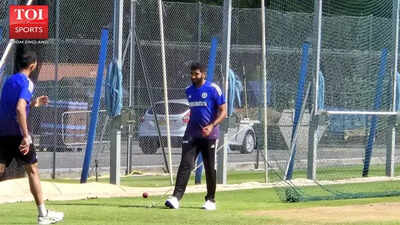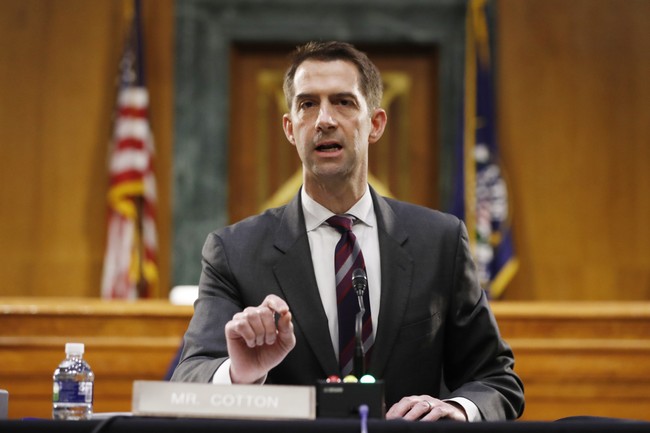Glastonbury 2025: Friday with Busta Rhymes, Alanis Morissette, Taskmaster and more – follow it live!

Key events
The 1975, like Biffy Clyro immediately before them, have quite a deep back catalogue to draw from. She’s American, next, which transmogrifies into the Backstreet Boys’ I Want It That Way, midway through.
Busta Rhymes reviewed

Jason Okundaye
The magic of Glastonbury is that I could’ve gone my whole life not seeing Busta Rhymes perform without giving it a second thought, and now having seen him I don’t know how life could’ve been complete without it.
Rhymes is not alone for this performance; he reunites with former members of hip-hop collective Flipmode Squad, Spliff Star and DJ Scratch, Spliff entering the stage before him letting us know that “the dragon has now been summoned” (a visual of a dragon flying across London and mounting Buckingham Palace before breathing fire on to the city is displayed on screen). Coming on in a black T-shirt and wearing a big-ass chain, Rhymes launches into truly frenetic and explosive performances of What It Is, Ante Up and Put Your Hands Where My Eyes Could See. You cannot ignore the speed and complexity and breath control required for much of Rhymes’s discography. In terms of beats-per-minute, delivery of his speediest rap verses could frustrate even the most agile, stamina-resilient rappers. Yet, four decades into his career, he never pauses for breath or misses a beat.
The show is also absolutely hilarious, and the interaction with the crowd is gold standard. Spliff instructs them to wave their hands in the air so often that it starts to feel like a trial session for a hip-hop aerobics class. At one point Rhymes instructs the whole audience to put their hands up, saying “police, this is the one time we can tell you to put your fucking hands up in the air too!”. There’s an interlude skit about a quarter of the way through the show where a Black British woman is welcoming Rhymes to London: “we’d like to show you a glorious time while you’re here.”
When he comes out again for Touch It, he and Spliff are dressed like a cross between power rangers and racecar drivers. They get everyone in the crowd to go low, and Rhymes happily wags his tongue and gyrates his crotch to the lyric “she turned around and was tryin’ to put my dick in her mouth.” They make no apology about being up for their ladies too, it’s their preference for women to outnumber men in this setting, you see. In fact DJ Scratch announces a track for the “freaky women” (apparently there’s a lot of them out here in the UK, who knew?) and it’s the Pussycat Dolls’ Don’t Cha – completely random, but a real stroke of genius.
What makes this show most impressive though, is that it first reminds you of the dynamic, brashful, arrogant, swagger of real hip-hop entertainers – a vanishing quality among today’s younger stars – and for its unapologetic education in hip-hop history. Rhymes and Spliff constantly talk about taking you back to the past, to 2000, to 1992, to 1984; Spliff even acts out how breakbeats for tracks are made, “put the beat on the record, then he cut it” which instantly brings you into a vigorous performance of Here We Go Again.
So too do the Jamaican origins of hip-hop culture, with its sound systems and toasting, come through in the performance: Hip-Hop pioneer DJ Kool Herc was a Jamaican immigrant in the Bronx after all, and Rhymes’s remix of Make It Clap honours these roots.
And then there is the wonderful random moment of bravado, where they make the whole crowd sing We Are the Champions. I don’t know how to communicate just how funny this moment was, or how strangely moved I suddenly felt at witnessing a dying breed of truly great hip-hop entertainers. It gets ever more emotional at the close when Rhymes showers praise on Spliff, speaking of how he’s survived being shot 12 times, going to jail, experiencing heart failure and prostate cancer. He is certainly lucky to be here, but we are even more lucky for having seen the both of them.
Healy’s having fun out there: a large pink catwalk has been installed and he sashays down it for Love Me. First endearing/irritating (depending on your stance on Healy) bon mot too: “Now, in 2025, and without irony: a guitar solo”
The 1975 are here!
Matty Healy and his boys emerge, Healy swaggering on with a pint of Guinness, naturally. They open with Happiness, preceded by a very long, very lusty sax solo. Each member has their name above them on a bright white graphic.
Biffy Clyro reviewed

Ben Beaumont-Thomas
There must have been a real Sliding Doors moment for Biffy Clyro at some point. Hard-gigging, operating somewhere in the earnest zone between post-hardcore, post-rock and math-rock around the millennium, they so easily could have stayed a fiercely beloved cult act playing 500-cap venues and putting out albums with runic lettering and maybe some kind of priestess wearing a cow skull.
Instead, they decided to grasp the – very likely at that point shameful-feeling – pop nettle. Whoa-oh-oh choruses? Yes. Ballads that get picked up for X Factor winners? Sure. Lyrics like “I am a mountain” and “pray for the better days” that could easily be painted on to the kind of home furnishings you might buy at B&M Bargains? Certainly.
But there’s something ragged, Celtish and extremely braw about the way Biffy sell all of this corny business, and this Pyramid stage set is an absolutely triumphant reminder that they, in a way that is often forgotten, have a formidable greatest hits set when they need it.
After a tinny mix settles down around track three, there is so much to love here: Tiny Indoor Fireworks’ almost naively pretty chorus and clever high tempo licks; or how Bubbles pootles along a pretty ordinary garage rock riff then zooms into a Harrier Jump Jet chorus. Instant History has an almost laughably simple chorus line of “This is the sound that we make” – well, yes, it is. And yet they invest it with a sort of koan-like wisdom, paired with a melody that could power an EDM track. Living Is a Problem Because Everything Dies is a show of ultra-technical, highly drilled math rock mentalism, which suddenly handbrake turns into frontman Simon Neil doing a solo cover of the Beach Boys’ God Only Knows. And then back again.
They’re Imagine Dragons with actual imagination, the Mumford and Sons with a fucken’ guitar instead of a banjo. Many of Horror closes the set out, and its bridge of “I still believe it’s you and me till the end of time” looks so lacking on the page – but there’s such romance in the way Neil sings it.
On at Woodsies at the moment is Floating Points, delivering a set of moody minimalist techno lit by little more than a few stark blue spotlights. It’s a big festival for him: he also has a lovely new venue, Sunflower, which Shaad D’Souza wrote about earlier.
Another standalone review, this time Alexis Petridis on Lewis Capaldi’s surprise Pyramid set. It sounded more that a little emotional:
Pinkpantheress reviewed

Shaad D’Souza
The album of the summer is, without a doubt, PinkPantheress’s Fancy That – a 20-odd-minute blitzkrieg of a mixtape that’s loud, funny and somehow manages to squeeze six separate Basement Jaxx samples into its extremely brief runtime. Fancy That Pink’s best body of work to date, and when she performs all of it for the first time at Woodsies, they’re often the songs that the huge crowd reacts best to. When she launches into Illegal, the tape’s cheeky, fleet-footed opener, the crowd absolutely screams the words back – a remarkable thing for a two-month-old mixtape.
This mutual love is paired with a bizarre but great stage setup: Louis Theroux, mystifyingly a friend of Pink’s, has prerecorded a skit to introduce the show; Pink’s nine-piece band includes brass players, backing singers, a beatboxer, and a besuited DJ who’s dancing like he’s taken a bunch of pills. It is all strange, and it is all brilliant.
Earlier this afternoon Elle Hunt went to see Alanis Morissette take over the Pyramid stage, and her verdict has landed:
Taskmaster reviewed

Gwilym Mumford
These days Taskmaster is a comedy juggernaut, with immersive live experiences, international remakes, the lot. For comics, it’s a vital rung to tread on on the ladder of fame, and it has minted numerous rising standups. Still for all that, the basic premise has basically remained unchanged since its early faltering days on Dave: Alex Horne makes up some charmingly lo-fi games for comedians to compete in, and Greg Davies judges their performances, often savagely. Its shambolic nature is sort of the point.
All of which makes it perfect Glasto fare, and given the fact that Horne is a permanent fixture here, and that there’s a large stable of comedians to choose from as contestants, it’s surprising that a live version has never been tried here before. Taskmaster’s debut comes in a filled to the corners Cabaret tent, with plenty of people stuck outside, squinting through the fire exit for a look.
It begins with a fittingly shonky rendition of Starship’s Nothing’s Gonna Stop Us now, followed by the briefest of Q&As. And then we’re into the game proper. The guests are returnees James Acaster (a genuinely global name these days), Kerry Godliman and Lou Sanders, joined by first-timers Richard Blackwood and, erm, Basil Brush. After an opening game where everyone has to bring something they want to take home from Glastonbury – Acaster and Blackwood get loud boos for “memories” and “a programme” respectively, Godliman crushes it with “tie-dye knickers” – the competition settles into a series of best-of games from previous episodes of the show, including all-time classics Sausage or Finger and Pop on a Onesie in the Tent. Oh and Basil Brush performed a surprisingly nimble rendition of Purple Rain.
It’s endearingly all over the map, bar one tonally jarring moment: a round where contestants have to find lookalikes in the audience, put a pillowcase over their head and bring them to be judged on their lookey-likeyness by Davies. Blackwood, not unreasonably, points out that there is a distinct absence of Black people in the audience and then picks a small white child for his lookalike instead. Davies doesn’t really have any choice but to give him the full five points. It’s handled cheerfully enough, but there are a few awkward pauses where the audience isn’t entirely sure whether to laugh – the sort of thing that would be slickly edited around were this a normal TV episode of Taskmaster. Perhaps there is a good reason a Glasto Taskmaster has happened before then.
Seeing as this episode won’t ever appear on your screen, and thus isn’t “canon”, we can tell you who won: it was Sanders, who aced the Sausage and Onesie rounds. She celebrates with a handstand while Basil Brush sings Purple Rain again – the sort of sentence you’d probably only associate with Taskmaster.




